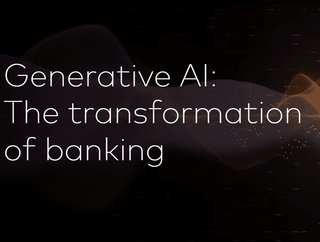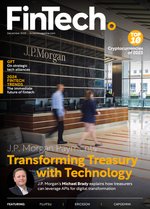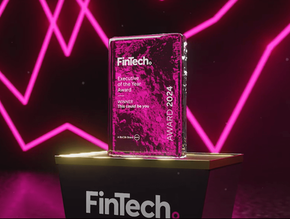Mastercard: Ten key use cases for Gen AI in banking

Mastercard has released its latest signals report, Generative AI: The transformation of banking, highlighting ten key use cases for Generative AI in banking today.
Of course, with any new technology comes challenges, so Mastercard outlines how banks can mitigate these new obstacles.
The report also details how banks can navigate regulatory uncertainties that arise when implementing Gen AI, deploy a phased integration of Gen AI, leverage emerging use cases to achieve efficiencies, accelerate productivity and reimagine customer experiences.
Mastercard’s insights come at a key time too, with banks expected to significantly ramp up their integration of Gen AI into back and front-end services over the next year.
Ken Moore, Chief Innovation Officer at Mastercard, says: “We’ve just scratched the surface of potential transformations enabled by Generative AI, and expect that within the next year, it will gradually integrate into the operations and products of financial institutions and merchants globally.”
Mastercard: Ten successful Gen AI use cases in banking
Below, we outline Mastercard’s ten key use cases for Gen AI in banking. For more details, you can see the full report by clicking on the link HERE.
Knowledge and insights
Bankers equipped with Gen AI may find that information searches that once consumed hours could now take minutes. When they need to check up on complex regulations, bankers could, via Gen AI, receive cogent summaries — rather than just citations of, or links to, statutes and other raw material.
Information technology
Gen AI could help with drafting project specifications; writing and debugging code; creating synthetic data with which to stress new solutions’ fraud and risk systems; code refactoring; and more. Day to day, engineers might tap gen AI for stepwise guidance in various tasks.
Cybersecurity and fraud prevention
Large language models (LLMs) could be specially tailored for security work. These LLMs could respond to threats and synthesise complex data into clear guidance that professionals can act on. Gen AI's pattern recognition capabilities could improve the surveillance capabilities of older forms of AI.
Talent management
With its ability to process unstructured data, Gen AI solutions could find and put in front of HR managers candidates who may lack traditional banking employment backgrounds — but have much to offer.
Client onboarding
Gen AI could streamline know-your-customer compliance and documentation management. Rapidly synthesising client data, it could flag risks and automate paperwork, expediting time-to-ROI.
Conversational banking
Gen AI could promise bots capable of responding to customer inquiries in contextually appropriate ways. The image of the bank client trying to bypass a chat system to reach a human operator could become obsolete.
Wealth advisory
Data-synthesising Gen AI solutions could promise advice unencumbered by emotions or wishful thinking. Financial advisors and their clients could use AI-powered simulations to deepen their grasp of complex investment strategies.
Credit issuance
Gen AI could reduce loan processing times and associated costs by offering applicants step-by-step conversational guidance. Simpler loan processes could compel more businesses and individuals to apply, spreading the benefits of credit more widely.
Loyalty programmes
Gen AI gives programme managers a possible tool with which to communicate with participants about their desires in real-time, enabling better matching of people to rewards. Its conversational powers could also guide users through sometimes complicated programmes.
Marketing and communications
Besides using Gen AI for dynamic testing and to create emails and social posts, marketers could gain a new understanding of consumer reactions by pairing its content-generating powers with sentiment analysis and social listening tools.
******
For more insights from FinTech Magazine, you can see our latest edition of FinTech Magazine here, or you can follow us on LinkedIn and Twitter.
You may also be interested in our sister site, InsurTech Digital, which you can also follow on LinkedIn and Twitter.
Please also take a look at the playlist for our latest hybrid event, FinTech LIVE London, to learn all about the latest trends in fintech.
******
BizClik is a global provider of B2B digital media platforms that provides executive communities for CEOs, CFOs, CMOs, Sustainability Leaders, Procurement & Supply Chain Leaders, Technology & AI Leaders, Cyber Leaders, FinTech & InsurTech Leaders as well as covering industries such as Manufacturing, Mining, Energy, EV, Construction, Healthcare, and Food & Drink.
BizClik – based in London, Dubai, and New York – offers services such as Content Creation, Advertising & Sponsorship Solutions, Webinars & Events.
- Hong Kong’s FundPark Lands US$250m in Goldman Sachs BackingVenture Capital
- Sumsub: Identity Fraud up 73%; how can Fintechs React?Fraud & ID Verification
- Money20/20 USA: Convera Talks FX Volatility for BusinessesFinancial Services (FinServ)
- Mastercard: Supporting B2B Healthcare With Payments SolutionFinancial Services (FinServ)







